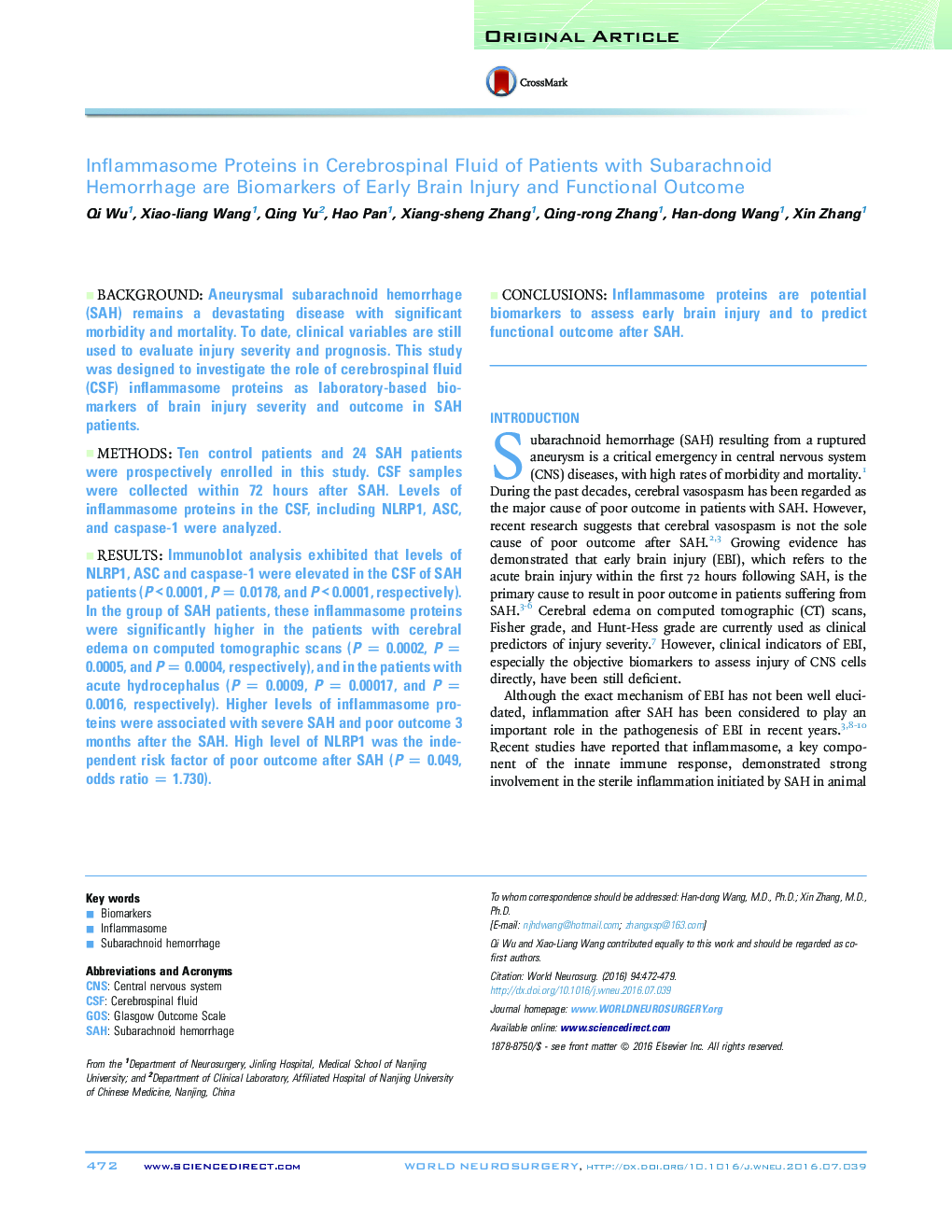| Article ID | Journal | Published Year | Pages | File Type |
|---|---|---|---|---|
| 3094636 | World Neurosurgery | 2016 | 8 Pages |
BackgroundAneurysmal subarachnoid hemorrhage (SAH) remains a devastating disease with significant morbidity and mortality. To date, clinical variables are still used to evaluate injury severity and prognosis. This study was designed to investigate the role of cerebrospinal fluid (CSF) inflammasome proteins as laboratory-based biomarkers of brain injury severity and outcome in SAH patients.MethodsTen control patients and 24 SAH patients were prospectively enrolled in this study. CSF samples were collected within 72 hours after SAH. Levels of inflammasome proteins in the CSF, including NLRP1, ASC, and caspase-1 were analyzed.ResultsImmunoblot analysis exhibited that levels of NLRP1, ASC and caspase-1 were elevated in the CSF of SAH patients (P < 0.0001, P = 0.0178, and P < 0.0001, respectively). In the group of SAH patients, these inflammasome proteins were significantly higher in the patients with cerebral edema on computed tomographic scans (P = 0.0002, P = 0.0005, and P = 0.0004, respectively), and in the patients with acute hydrocephalus (P = 0.0009, P = 0.00017, and P = 0.0016, respectively). Higher levels of inflammasome proteins were associated with severe SAH and poor outcome 3 months after the SAH. High level of NLRP1 was the independent risk factor of poor outcome after SAH (P = 0.049, odds ratio = 1.730).ConclusionsInflammasome proteins are potential biomarkers to assess early brain injury and to predict functional outcome after SAH.
